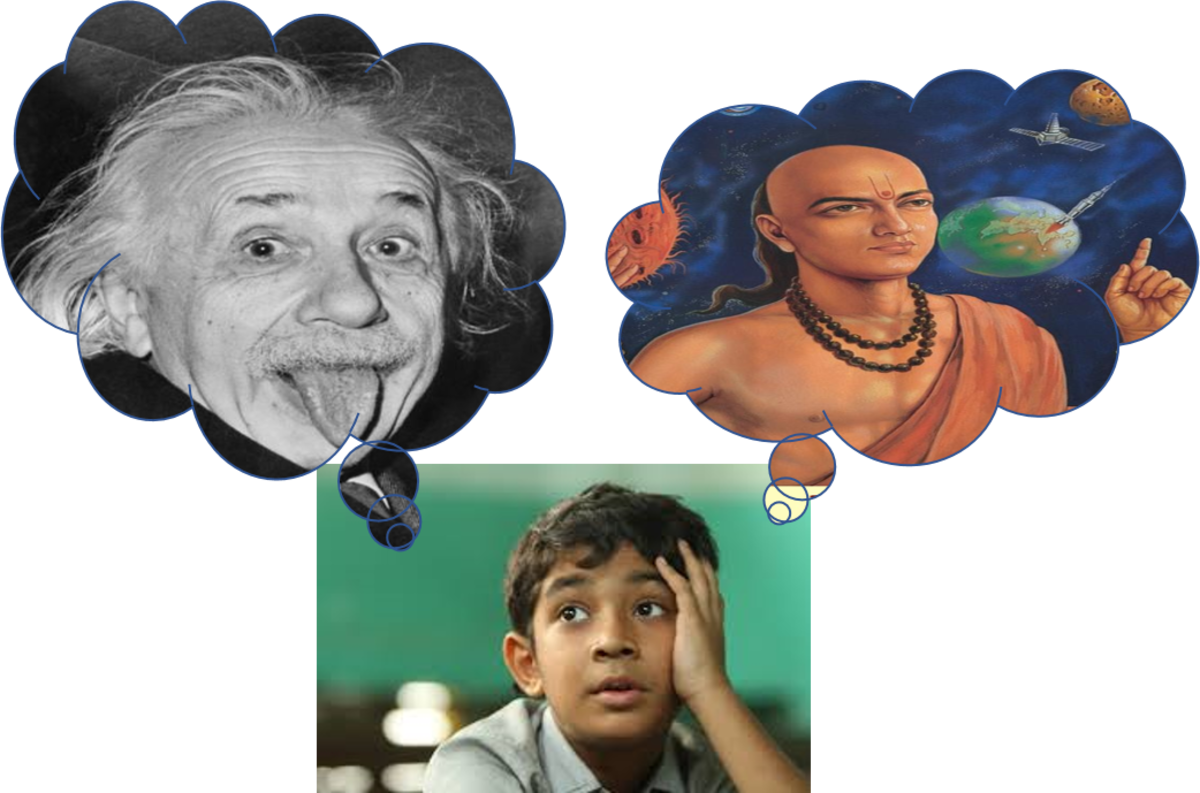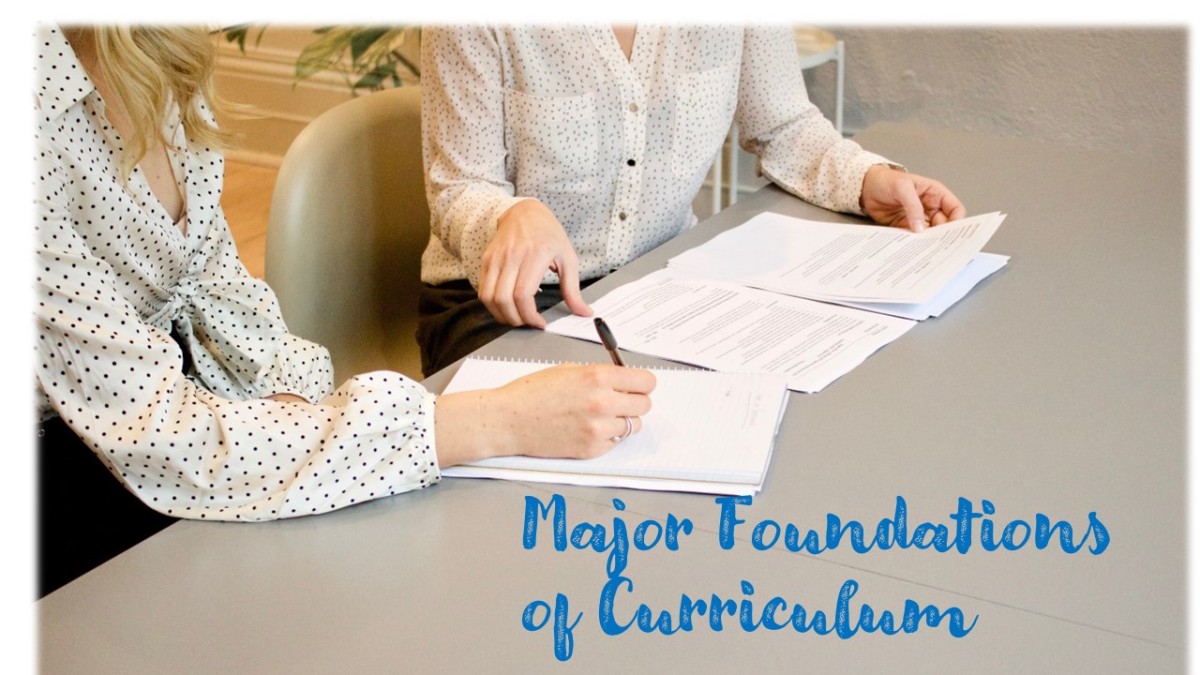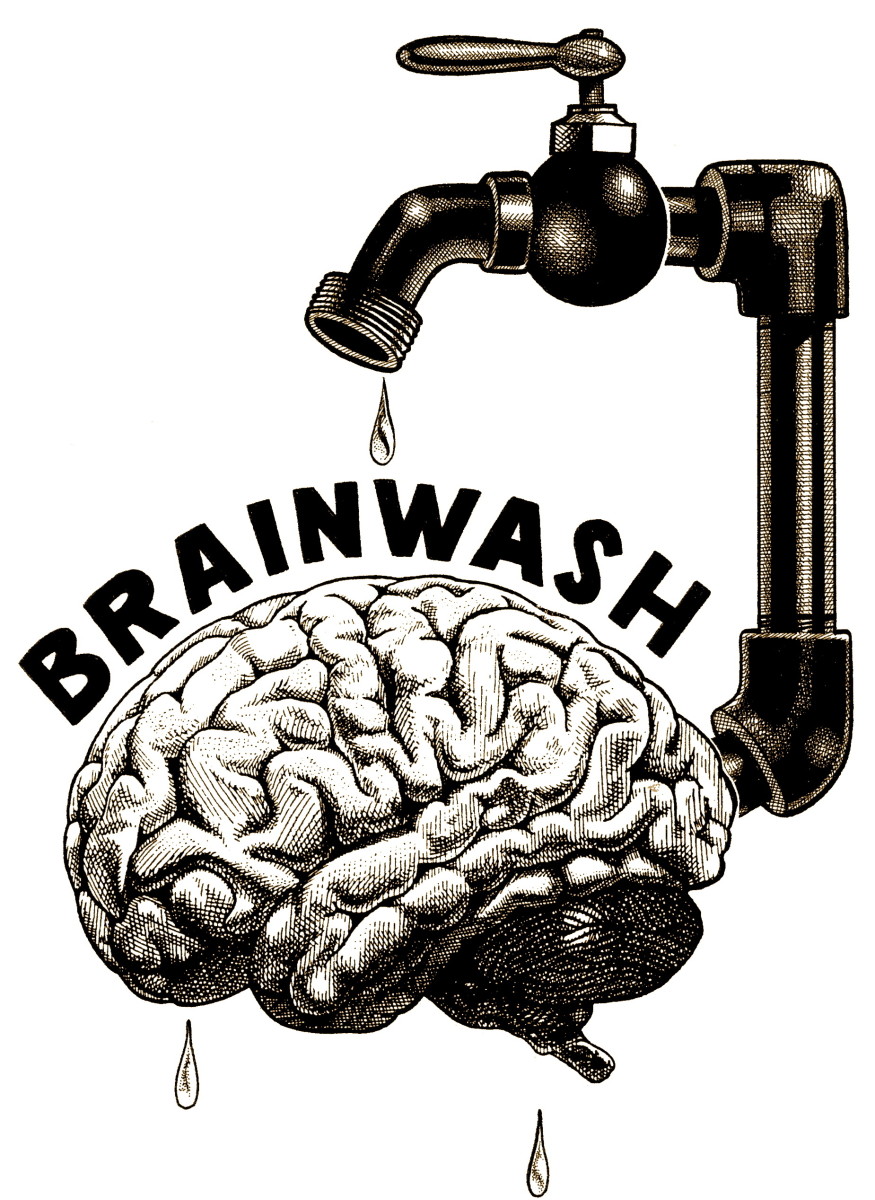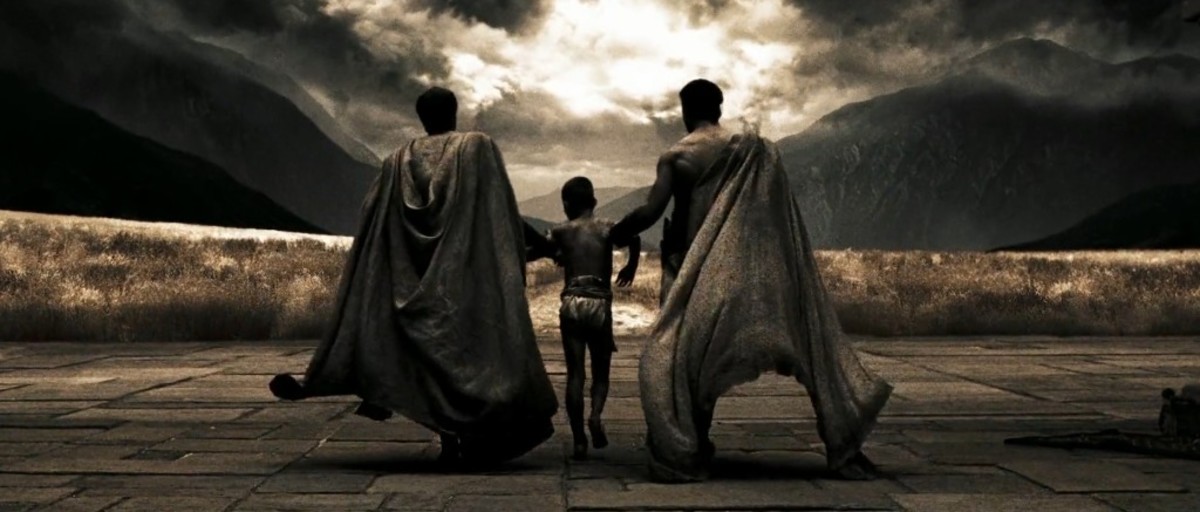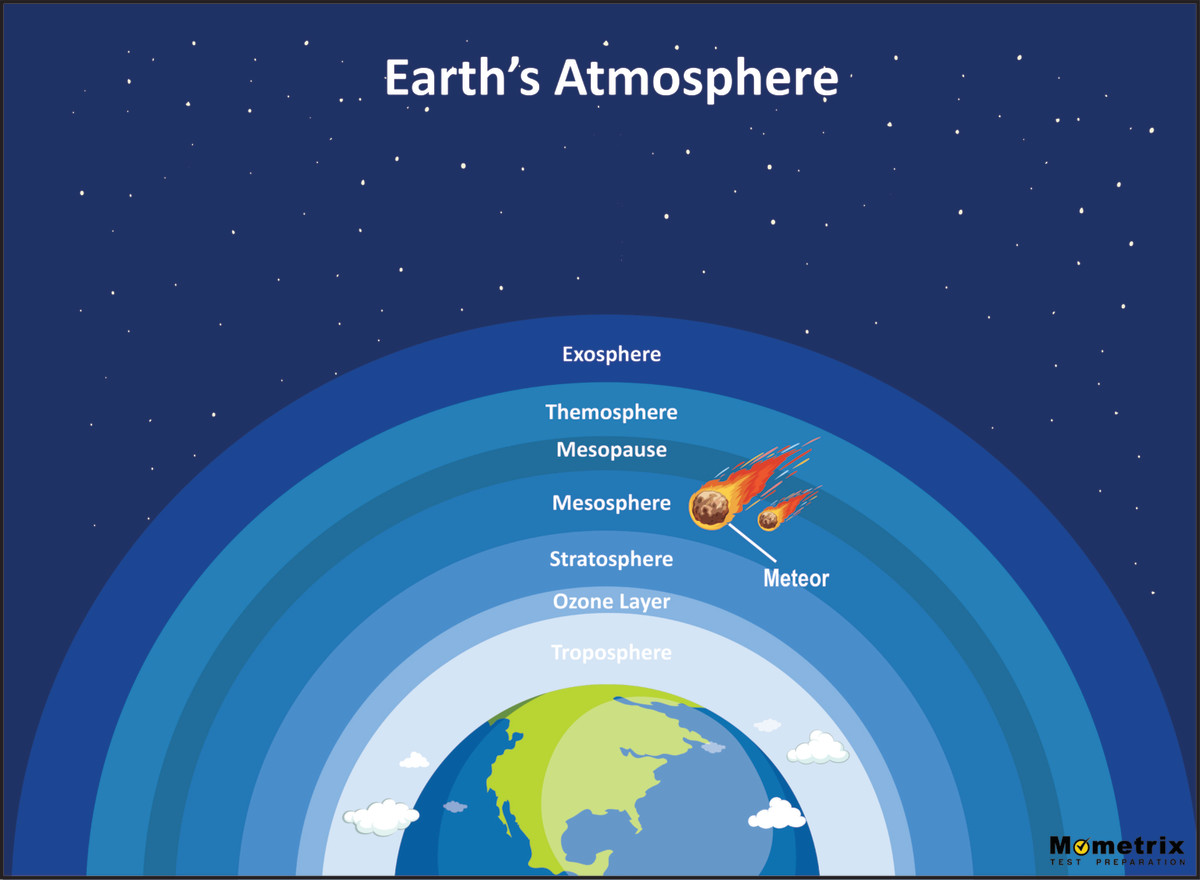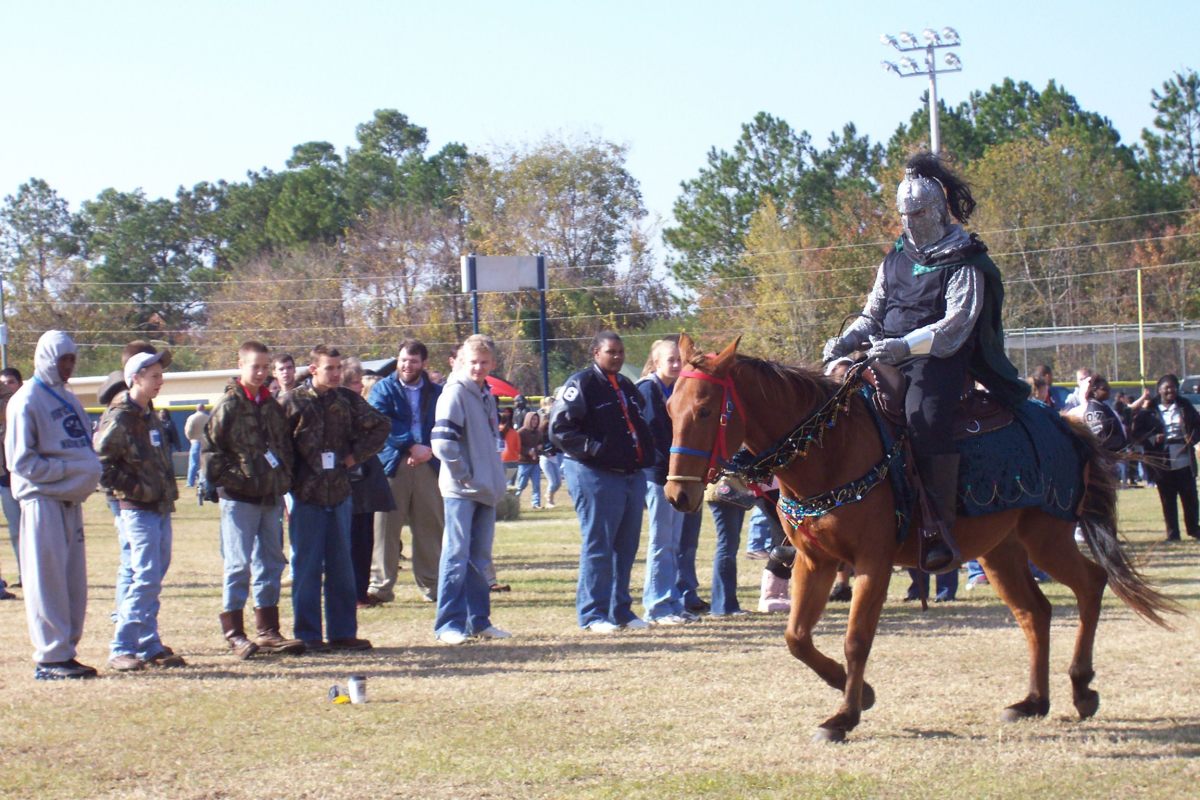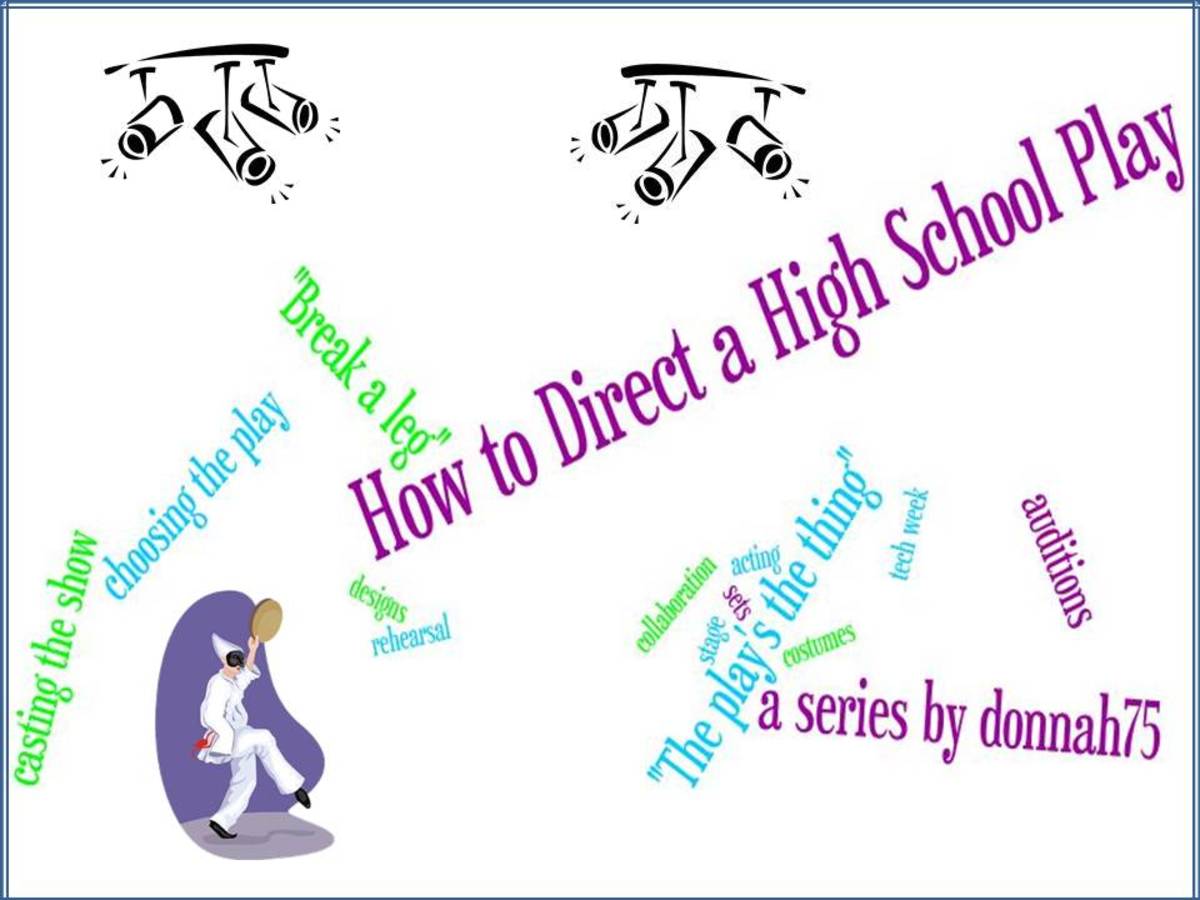Does the rise of a classical approach to our Education System answer the call to improve it?
In these times of economic restraints funds are limited to help improve our education system for today and into the future. The question to be asked is what methods offer some answers to what our country needs to improve the results of our education system. Two important areas are math and science for which we have fallen in stature over the years. There is currently a new movement called classic education which is incorporating new methods to teach the future leaders of tomorrow and it is increasingly becoming popular in many circles. This is taking place in schools and has the support of many organizations which believe in the methods and techniques being implemented.
Many of us may not have heard of this concept as I myself had not until I had a conversation at one of my professional society meetings. The concept raised my interest and I therefore decided to find out more of this concept and what it involves. I found some interesting facts which warrant presenting information for others to understand what it is and why it is a unique endeavor. This approach has been enhanced by the technology we now have and will have in the future. There are always going to be those individuals who have good intentions but it is not always what the system needs. An organization which seems to be spearheading this concept is the CIRCE Institute.
Today our schools are measured by several criteria but are the right measurements being evaluated and are the needs of society being met today and for the future? The answer to the previous question is a resounding no but the system can be corrected to accomplish the objective previously identified.
Government, private industry and the public/private school system needs a cultural change. The structure of our education system is not the problem it is the philosophical approach being taken to the teaching process. This is not to say that there are not good teachers and good schools within our country for this would be a false statement to make. Many schools and teachers are enthusiastic about the teaching profession and take their responsibilities seriously and for those who have this attitude I applaud them and their efforts.
One of the critical areas our educational system must satisfy is to create an environment where students are encouraged to think for themselves and to ask questions about what is being taught. The textbooks which are utilized today in many cases have revamped our history to become more politically correct rather than presenting the true facts about our country’s historical events. Granted it may be necessary to correct language or facts based on new information about certain events and this is an appropriate and acceptable action. The problem with changing information in new textbooks for our schools is what supports the changes being implemented.
One of the problems with the present day education processes involves our cultural heritage. We often learn from our past as individuals and our country’s past is no different. In both of these examples it points to the fact we have a connection to the past from which we must learn to have a better tomorrow. One movement in the realm of education involves a classical approach to educating the leaders of tomorrow and involves the principle of accountability among others. Accountability to some extent is a measurement being imposed through the present criteria in existence but is the right kind of accountability being applied. The answer to this question is also a resounding no with some exceptions.
Basically there are two streams of though in this approach. One is philosophical and the other is rhetorical. The philosophical approach though it uses a guiding approach it is done through an analysis of ideas by believing that insight into the heart of things will enable students to grow in wisdom and virtue. In the rhetorical approach teachers guide their students to contemplate great texts and works of art. The explanation of these two streams of thought along with other elements of this new approach to our education system was taken from the website of an organization called the CIRCE Institute through their website.
It is important to point out that this article is not an attempt to identify all the aspects of a classical approach to our education needs for there is much information through the CIRCE Institute website. Our leaders of tomorrow whether they are taught in public or private education facilities they must have the capabilities and understanding of a wide knowledge base to be a viable member of society. It is also understood that each individual has certain talents and capabilities. In retrospect keeping that in mind it is not necessary to be an expert in every subject area but each individual should have a basic understanding of what they represent to society. Basic needs of our educational system are identified below:
Liberal Arts
Natural sciences
Human sciences
Philosophical sciences
Socratic instruction
Verbal arts
The approach being taken to these areas are identified more completely in the CIRCE Institute website. What these represent and their importance are discussed in the subsequent paragraphs. The approach identified in the Institute’s website is a mode of producing something other than the art itself. This in and of itself is a unique approach to the teaching of liberal arts classes. One important liberal art is grammar which we as individuals know it an important part of our education system. It can and does impact the art of communication within society and our capabilities to be successful. One important statement made on the CIRCE Institute website was profound in what it identified. It said “liberal are called the liberal arts because they are both the arts that every free person is free to master and the arts that are required to be free. A community that fails to master the arts of the trivium cannot be a free community. For example, he who is not a master of the art of logic is a victim of manipulators, both external (in society) and internal (in the soul), while he who is not a master of the art of rhetoric will be unable to express his thoughts appropriately.”
The distinction between natural sciences and human sciences are also important aspects of educating our future leaders. Natural sciences are the science of physical order such as biology while human sciences are the sciences of moral order such as behavior and the soul of which an example is ethics. In conjunction with natural sciences and human sciences are the philosophical sciences and Socratic instruction. The approach of philosophical sciences identified through the institute is the fact the goal is to know the causes of and limits of human knowledge and to know causality itself. “Socratic instruction is the dialectical process of examining an idea by “deconstructing” it to find weaknesses and inconsistencies in one’s understanding, and then “reconstructing” it to clarify or purify one’s understanding.”
In summary two distinct principles are identified as part of a classic approach to education. The first is a list of ideas which the Institute feels should be a part of every curriculum which an educational institution should make an effort to incorporate. Each of the ideas identified below are important elements and should be a part of our education system:
Truth
Goodness
Beauty
Wisdom
Virtue
Personhood
Freedom
Justice
Community
Being
Mode
Change
Glory
Honor
Immorality
The other set of principles or laws as they identify them involve seven laws of teaching which I have not ever seen identified in any list anywhere. The list below was noted to have been identified in a book written in 1886 by John Milton Gregory, which by their nature appears to have been far ahead of its time. They Are:
The law of the teacher
The law of the learner
The law of language
The law of the lesson
The law of teaching
The law of learning
The law of review
The approach of classic education methods is definitely something new but it is one which should be explored or at least examined by the schools of our country. Today the manners in which our schools are measured appear to be an attempt to check a box on an evaluation form. It needs to change from forms to how our schools measure up to the needs of society now and in the future. Our society needs many things and granted some measurements need to be made but whom best to measure the success of our schools but society in the success to furnish knowledgeable and capable individuals to meet business needs today and in the future. In terms of whether this approach meets or will meet the needs of our country now and in the future is up to those in positions to make these kinds of decisions. It should not be government.
In these times of economic restraints funds are limited to help improve our education system for today and into the future. The question to be asked is what methods offer some answers to what our country needs to improve the results of our education system. Two important areas are math and science for which we have fallen in stature over the years. There is currently a new movement called classic education which is incorporating new methods to teach the future leaders of tomorrow and it is increasingly becoming popular in many circles. This is taking place in schools and has the support of many organizations which believe in the methods and techniques being implemented.
Many of us may not have heard of this concept as I myself had not until I had a conversation at one of my professional society meetings. The concept raised my interest and I therefore decided to find out more of this concept and what it involves. I found some interesting facts which warrant presenting information for others to understand what it is and why it is a unique endeavor. This approach has been enhanced by the technology we now have and will have in the future. There are always going to be those individuals who have good intentions but it is not always what the system needs.
An organization which seems to be spearheading this concept is the CIRCE Institute.
Today our schools are measured by several criteria but are the right measurements being evaluated and are the needs of society being met today and for the future? The answer to the previous question is a resounding no but the system can be corrected to accomplish the objective previously identified.
Government, private industry and the public/private school system needs a cultural change. The structure of our education system is not the problem it is the philosophical approach being taken to the teaching process. This is not to say that there are not good teachers and good schools within our country for this would be a false statement to make. Many schools and teachers are enthusiastic about the teaching profession and take their responsibilities seriously and for those who have this attitude I applaud them and their efforts.
One of the critical areas our educational system must satisfy is to create an environment where students are encouraged to think for themselves and to ask questions about what is being taught. The textbooks which are utilized today in many cases have revamped our history to become more politically correct rather than presenting the true facts about our country’s historical events. Granted it may be necessary to correct language or facts based on new information about certain events and this is an appropriate and acceptable action. The problem with changing information in new textbooks for our schools is what supports the changes being implemented.
One of the problems with the present day education processes involves our cultural heritage. We often learn from our past as individuals and our country’s past is no different. In both of these examples it points to the fact we have a connection to the past from which we must learn to have a better tomorrow. One movement in the realm of education involves a classical approach to educating the leaders of tomorrow and involves the principle of accountability among others. Accountability to some extent is a measurement being imposed through the present criteria in existence but is the right kind of accountability being applied. The answer to this question is also a resounding no with some exceptions.
Basically there are two streams of though in this approach. One is philosophical and the other is rhetorical. The philosophical approach though it uses a guiding approach it is done through an analysis of ideas by believing that insight into the heart of things will enable students to grow in wisdom and virtue. In the rhetorical approach teachers guide their students to contemplate great texts and works of art. The explanation of these two streams of thought along with other elements of this new approach to our education system was taken from the website of an organization called the CIRCE Institute through their website.
It is important to point out that this article is not an attempt to identify all the aspects of a classical approach to our education needs for there is much information through the CIRCE Institute website. Our leaders of tomorrow whether they are taught in public or private education facilities they must have the capabilities and understanding of a wide knowledge base to be a viable member of society. It is also understood that each individual has certain talents and capabilities. In retrospect keeping that in mind it is not necessary to be an expert in every subject area but each individual should have a basic understanding of what they represent to society. Basic needs of our educational system are identified below:
Liberal Arts
Natural sciences
Human sciences
Philosophical sciences
Socratic instruction
Verbal arts
The approach being taken to these areas are identified more completely in the CIRCE Institute website. What these represent and their importance are discussed in the subsequent paragraphs. The approach identified in the Institute’s website is a mode of producing something other than the art itself. This in and of itself is a unique approach to the teaching of liberal arts classes. One important liberal art is grammar which we as individuals know it an important part of our education system. It can and does impact the art of communication within society and our capabilities to be successful. One important statement made on the CIRCE Institute website was profound in what it identified. It said “liberal are called the liberal arts because they are both the arts that every free person is free to master and the arts that are required to be free. A community that fails to master the arts of the trivium cannot be a free community. For example, he who is not a master of the art of logic is a victim of manipulators, both external (in society) and internal (in the soul), while he who is not a master of the art of rhetoric will be unable to express his thoughts appropriately.”
The distinction between natural sciences and human sciences are also important aspects of educating our future leaders. Natural sciences are the science of physical order such as biology while human sciences are the sciences of moral order such as behavior and the soul of which an example is ethics. In conjunction with natural sciences and human sciences are the philosophical sciences and Socratic instruction. The approach of philosophical sciences identified through the institute is the fact the goal is to know the causes of and limits of human knowledge and to know causality itself. “Socratic instruction is the dialectical process of examining an idea by “deconstructing” it to find weaknesses and inconsistencies in one’s understanding, and then “reconstructing” it to clarify or purify one’s understanding.”
In summary two distinct principles are identified as part of a classic approach to education. The first is a list of ideas which the Institute feels should be a part of every curriculum which an educational institution should make an effort to incorporate. Each of the ideas identified below are important elements and should be a part of our education system:
Truth
Goodness
Beauty
Wisdom
Virtue
Personhood
Freedom
Justice
Community
Being
Mode
Change
Glory
Honor
Immorality
The other set of principles or laws as they identify them involve seven laws of teaching which I have not ever seen identified in any list anywhere. The list below was noted to have been identified in a book written in 1886 by John Milton Gregory, which by their nature appears to have been far ahead of its time. They Are:
The law of the teacher
The law of the learner
The law of language
The law of the lesson
The law of teaching
The law of learning
The law of review
The approach of classic education methods is definitely something new but it is one which should be explored or at least examined by the schools of our country. Today the manners in which our schools are measured appear to be an attempt to check a box on an evaluation form. It needs to change from forms to how our schools measure up to the needs of society now and in the future. Our society needs many things and granted some measurements need to be made but whom best to measure the success of our schools but society in the success to furnish knowledgeable and capable individuals to meet business needs today and in the future. In terms of whether this approach meets or will meet the needs of our country now and in the future is up to those in positions to make these kinds of decisions. It should not be government.
In these times of economic restraints funds are limited to help improve our education system for today and into the future. The question to be asked is what methods offer some answers to what our country needs to improve the results of our education system. Two important areas are math and science for which we have fallen in stature over the years. There is currently a new movement called classic education which is incorporating new methods to teach the future leaders of tomorrow and it is increasingly becoming popular in many circles. This is taking place in schools and has the support of many organizations which believe in the methods and techniques being implemented.
Many of us may not have heard of this concept as I myself had not until I had a conversation at one of my professional society meetings. The concept raised my interest and I therefore decided to find out more of this concept and what it involves. I found some interesting facts which warrant presenting information for others to understand what it is and why it is a unique endeavor. This approach has been enhanced by the technology we now have and will have in the future. There are always going to be those individuals who have good intentions but it is not always what the system needs.
An organization which seems to be spearheading this concept is the CIRCE Institute.
Today our schools are measured by several criteria but are the right measurements being evaluated and are the needs of society being met today and for the future? The answer to the previous question is a resounding no but the system can be corrected to accomplish the objective previously identified.
Government, private industry and the public/private school system needs a cultural change. The structure of our education system is not the problem it is the philosophical approach being taken to the teaching process. This is not to say that there are not good teachers and good schools within our country for this would be a false statement to make. Many schools and teachers are enthusiastic about the teaching profession and take their responsibilities seriously and for those who have this attitude I applaud them and their efforts.
One of the critical areas our educational system must satisfy is to create an environment where students are encouraged to think for themselves and to ask questions about what is being taught. The textbooks which are utilized today in many cases have revamped our history to become more politically correct rather than presenting the true facts about our country’s historical events. Granted it may be necessary to correct language or facts based on new information about certain events and this is an appropriate and acceptable action. The problem with changing information in new textbooks for our schools is what supports the changes being implemented.
One of the problems with the present day education processes involves our cultural heritage. We often learn from our past as individuals and our country’s past is no different. In both of these examples it points to the fact we have a connection to the past from which we must learn to have a better tomorrow. One movement in the realm of education involves a classical approach to educating the leaders of tomorrow and involves the principle of accountability among others. Accountability to some extent is a measurement being imposed through the present criteria in existence but is the right kind of accountability being applied. The answer to this question is also a resounding no with some exceptions.
Basically there are two streams of though in this approach. One is philosophical and the other is rhetorical. The philosophical approach though it uses a guiding approach it is done through an analysis of ideas by believing that insight into the heart of things will enable students to grow in wisdom and virtue. In the rhetorical approach teachers guide their students to contemplate great texts and works of art. The explanation of these two streams of thought along with other elements of this new approach to our education system was taken from the website of an organization called the CIRCE Institute through their website.
It is important to point out that this article is not an attempt to identify all the aspects of a classical approach to our education needs for there is much information through the CIRCE Institute website. Our leaders of tomorrow whether they are taught in public or private education facilities they must have the capabilities and understanding of a wide knowledge base to be a viable member of society. It is also understood that each individual has certain talents and capabilities. In retrospect keeping that in mind it is not necessary to be an expert in every subject area but each individual should have a basic understanding of what they represent to society. Basic needs of our educational system are identified below:
Liberal Arts
Natural sciences
Human sciences
Philosophical sciences
Socratic instruction
Verbal arts
The approach being taken to these areas are identified more completely in the CIRCE Institute website. What these represent and their importance are discussed in the subsequent paragraphs. The approach identified in the Institute’s website is a mode of producing something other than the art itself. This in and of itself is a unique approach to the teaching of liberal arts classes. One important liberal art is grammar which we as individuals know it an important part of our education system. It can and does impact the art of communication within society and our capabilities to be successful. One important statement made on the CIRCE Institute website was profound in what it identified. It said “liberal are called the liberal arts because they are both the arts that every free person is free to master and the arts that are required to be free. A community that fails to master the arts of the trivium cannot be a free community. For example, he who is not a master of the art of logic is a victim of manipulators, both external (in society) and internal (in the soul), while he who is not a master of the art of rhetoric will be unable to express his thoughts appropriately.”
The distinction between natural sciences and human sciences are also important aspects of educating our future leaders. Natural sciences are the science of physical order such as biology while human sciences are the sciences of moral order such as behavior and the soul of which an example is ethics. In conjunction with natural sciences and human sciences are the philosophical sciences and Socratic instruction. The approach of philosophical sciences identified through the institute is the fact the goal is to know the causes of and limits of human knowledge and to know causality itself. “Socratic instruction is the dialectical process of examining an idea by “deconstructing” it to find weaknesses and inconsistencies in one’s understanding, and then “reconstructing” it to clarify or purify one’s understanding.”
In summary two distinct principles are identified as part of a classic approach to education. The first is a list of ideas which the Institute feels should be a part of every curriculum which an educational institution should make an effort to incorporate. Each of the ideas identified below are important elements and should be a part of our education system:
Truth
Goodness
Beauty
Wisdom
Virtue
Personhood
Freedom
Justice
Community
Being
Mode
Change
Glory
Honor
Immorality
The other set of principles or laws as they identify them involve seven laws of teaching which I have not ever seen identified in any list anywhere. The list below was noted to have been identified in a book written in 1886 by John Milton Gregory, which by their nature appears to have been far ahead of its time. They Are:
The law of the teacher
The law of the learner
The law of language
The law of the lesson
The law of teaching
The law of learning
The law of review
The approach of classic education methods is definitely something new but it is one which should be explored or at least examined by the schools of our country. Today the manners in which our schools are measured appear to be an attempt to check a box on an evaluation form. It needs to change from forms to how our schools measure up to the needs of society now and in the future. Our society needs many things and granted some measurements need to be made but whom best to measure the success of our schools but society in the success to furnish knowledgeable and capable individuals to meet business needs today and in the future. In terms of whether this approach meets or will meet the needs of our country now and in the future is up to those in positions to make these kinds of decisions. It should not be government.
In these times of economic restraints funds are limited to help improve our education system for today and into the future. The question to be asked is what methods offer some answers to what our country needs to improve the results of our education system. Two important areas are math and science for which we have fallen in stature over the years. There is currently a new movement called classic education which is incorporating new methods to teach the future leaders of tomorrow and it is increasingly becoming popular in many circles. This is taking place in schools and has the support of many organizations which believe in the methods and techniques being implemented.
Many of us may not have heard of this concept as I myself had not until I had a conversation at one of my professional society meetings. The concept raised my interest and I therefore decided to find out more of this concept and what it involves. I found some interesting facts which warrant presenting information for others to understand what it is and why it is a unique endeavor. This approach has been enhanced by the technology we now have and will have in the future. There are always going to be those individuals who have good intentions but it is not always what the system needs.
An organization which seems to be spearheading this concept is the CIRCE Institute.
Today our schools are measured by several criteria but are the right measurements being evaluated and are the needs of society being met today and for the future? The answer to the previous question is a resounding no but the system can be corrected to accomplish the objective previously identified.
Government, private industry and the public/private school system needs a cultural change. The structure of our education system is not the problem it is the philosophical approach being taken to the teaching process. This is not to say that there are not good teachers and good schools within our country for this would be a false statement to make. Many schools and teachers are enthusiastic about the teaching profession and take their responsibilities seriously and for those who have this attitude I applaud them and their efforts.
One of the critical areas our educational system must satisfy is to create an environment where students are encouraged to think for themselves and to ask questions about what is being taught. The textbooks which are utilized today in many cases have revamped our history to become more politically correct rather than presenting the true facts about our country’s historical events. Granted it may be necessary to correct language or facts based on new information about certain events and this is an appropriate and acceptable action. The problem with changing information in new textbooks for our schools is what supports the changes being implemented.
One of the problems with the present day education processes involves our cultural heritage. We often learn from our past as individuals and our country’s past is no different. In both of these examples it points to the fact we have a connection to the past from which we must learn to have a better tomorrow. One movement in the realm of education involves a classical approach to educating the leaders of tomorrow and involves the principle of accountability among others. Accountability to some extent is a measurement being imposed through the present criteria in existence but is the right kind of accountability being applied. The answer to this question is also a resounding no with some exceptions.
Basically there are two streams of though in this approach. One is philosophical and the other is rhetorical. The philosophical approach though it uses a guiding approach it is done through an analysis of ideas by believing that insight into the heart of things will enable students to grow in wisdom and virtue. In the rhetorical approach teachers guide their students to contemplate great texts and works of art. The explanation of these two streams of thought along with other elements of this new approach to our education system was taken from the website of an organization called the CIRCE Institute through their website.
It is important to point out that this article is not an attempt to identify all the aspects of a classical approach to our education needs for there is much information through the CIRCE Institute website. Our leaders of tomorrow whether they are taught in public or private education facilities they must have the capabilities and understanding of a wide knowledge base to be a viable member of society. It is also understood that each individual has certain talents and capabilities. In retrospect keeping that in mind it is not necessary to be an expert in every subject area but each individual should have a basic understanding of what they represent to society. Basic needs of our educational system are identified below:
Liberal Arts
Natural sciences
Human sciences
Philosophical sciences
Socratic instruction
Verbal arts
The approach being taken to these areas are identified more completely in the CIRCE Institute website. What these represent and their importance are discussed in the subsequent paragraphs. The approach identified in the Institute’s website is a mode of producing something other than the art itself. This in and of itself is a unique approach to the teaching of liberal arts classes. One important liberal art is grammar which we as individuals know it an important part of our education system. It can and does impact the art of communication within society and our capabilities to be successful. One important statement made on the CIRCE Institute website was profound in what it identified. It said “liberal are called the liberal arts because they are both the arts that every free person is free to master and the arts that are required to be free. A community that fails to master the arts of the trivium cannot be a free community. For example, he who is not a master of the art of logic is a victim of manipulators, both external (in society) and internal (in the soul), while he who is not a master of the art of rhetoric will be unable to express his thoughts appropriately.”
The distinction between natural sciences and human sciences are also important aspects of educating our future leaders. Natural sciences are the science of physical order such as biology while human sciences are the sciences of moral order such as behavior and the soul of which an example is ethics. In conjunction with natural sciences and human sciences are the philosophical sciences and Socratic instruction. The approach of philosophical sciences identified through the institute is the fact the goal is to know the causes of and limits of human knowledge and to know causality itself. “Socratic instruction is the dialectical process of examining an idea by “deconstructing” it to find weaknesses and inconsistencies in one’s understanding, and then “reconstructing” it to clarify or purify one’s understanding.”
In summary two distinct principles are identified as part of a classic approach to education. The first is a list of ideas which the Institute feels should be a part of every curriculum which an educational institution should make an effort to incorporate. Each of the ideas identified below are important elements and should be a part of our education system:
Truth
Goodness
Beauty
Wisdom
Virtue
Personhood
Freedom
Justice
Community
Being
Mode
Change
Glory
Honor
Immorality
The other set of principles or laws as they identify them involve seven laws of teaching which I have not ever seen identified in any list anywhere. The list below was noted to have been identified in a book written in 1886 by John Milton Gregory, which by their nature appears to have been far ahead of its time. They Are:
The law of the teacher
The law of the learner
The law of language
The law of the lesson
The law of teaching
The law of learning
The law of review
The approach of classic education methods is definitely something new but it is one which should be explored or at least examined by the schools of our country. Today the manners in which our schools are measured appear to be an attempt to check a box on an evaluation form. It needs to change from forms to how our schools measure up to the needs of society now and in the future. Our society needs many things and granted some measurements need to be made but whom best to measure the success of our schools but society in the success to furnish knowledgeable and capable individuals to meet business needs today and in the future. In terms of whether this approach meets or will meet the needs of our country now and in the future is up to those in positions to make these kinds of decisions. It should not be government.

